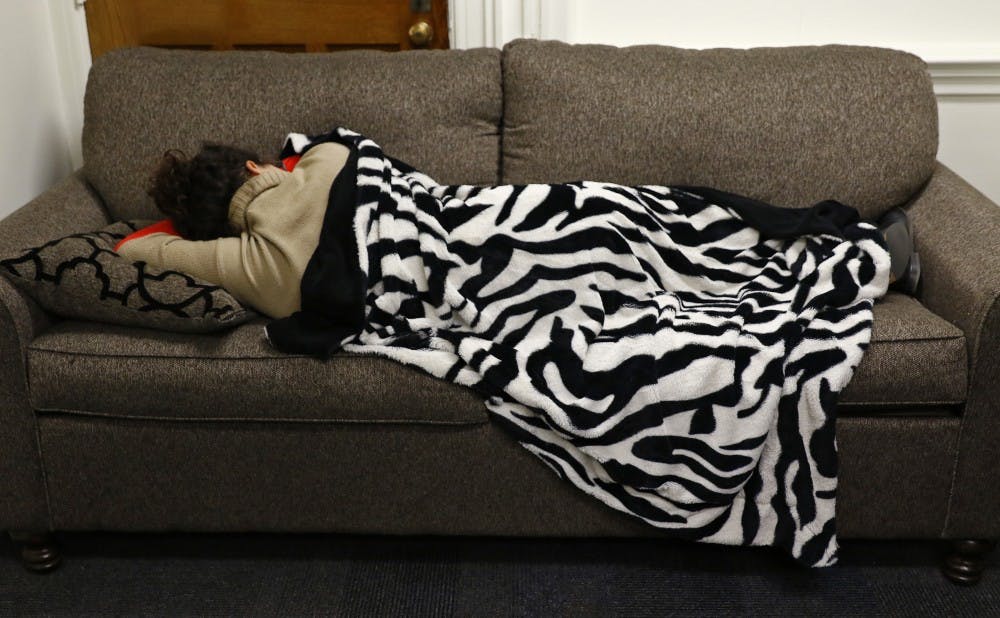How often do you see an acquaintance walking by on the quad and instinctively answer their obligatory “how are you?” with “I’m soooo tired.” I’ve said it so many times I can’t even count. Don’t get me wrong, I recognize that Duke students get far fewer hours of sleep than they should be getting; Duke has a way of creating such a stressful environment that students should have the right to complain about the loads of work they have. However, when I think back to the countless times I replied with a dramatic sigh and lamented that I only got three hours of sleep the night before, I was almost always embellishing.
Stress isn’t a competition. Advertising that you’re taking seven classes, pre-law and pre-med, a varsity athlete, working at a lab, volunteering at the animal shelter, and finding time to write a senior thesis as a sophomore doesn’t make you cooler or smarter. All it does is boost your ego and contribute to the slow but sure deterioration of Duke’s campus culture by creating and perpetuating ideas about seemingly “effortless perfection.”
Yes, I’m exaggerating. But only a little bit. We are so incredibly lucky to be part of the 10 percent of students who made the cut to attend Duke. And now, we are here, at one of the best institutions in the country, receiving a world-class education, and preparing for what successes lie ahead. So why do we still compete with one another? Sleep isn’t like golf. Getting fewer hours of shuteye doesn’t mean you’re a winner. It just means you’re at a much higher risk for depression and you’re probably going to die a couple years earlier.
When you get the impression that everyone around you is constantly busy, participating in this and that extracurricular and getting straight A’s in their classes, you naturally start to feel a little pressured. This kind of pressure builds up, enough so that eventually, you might feel the need to take drastic measures. Here, I recount some of the things that were said by real Duke students, either in truth or jest, that signify a problematic trajectory in the personal values of the individual members that make up our community:
I’m just going to take some Adderall.
Let me see if I can find the answer on Chegg.
Can you send me your answers so I can make sure I got the right ones?
My friend took the class last year, he’ll give me the answers.
I found the answers to the problem set online.
These are all self-explanatory. Ask anyone walking on Bryan Center plaza why doing any of these things is wrong, and they’ll give you the exact answer you want to hear. We all know why these actions are morally questionable, but some of us still do them. Out of any random selection of Duke students, it is nearly impossible to find a student who is not guilty of at least one of the transgressions listed above. As humans, we are fallible, but the culture of competitive stress is contributing to the emotional contagion that precedes a stupid decision like plagiarising or taking a performance-enhancing drug.
So the next time you meet a friend on the quad, don’t complain about how many caffeine pills you’re taking or how many hours you spent on Perkins last night. Instead, try to remember what it was like to be a human being before you defined yourself as a student.
This week's column was written by Megan Zhao, Trinity sophomore.
Get The Chronicle straight to your inbox
Signup for our weekly newsletter. Cancel at any time.
Kushal Kudakia, President of Duke Honor Council, is a Trinity junior. his column for Duke Honor Council runs on alternate Fridays.

